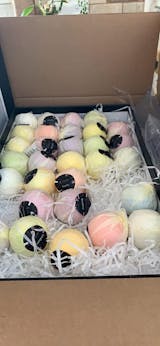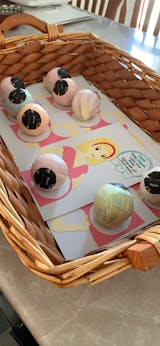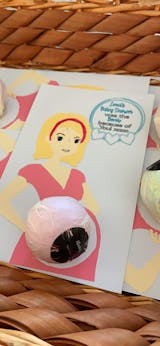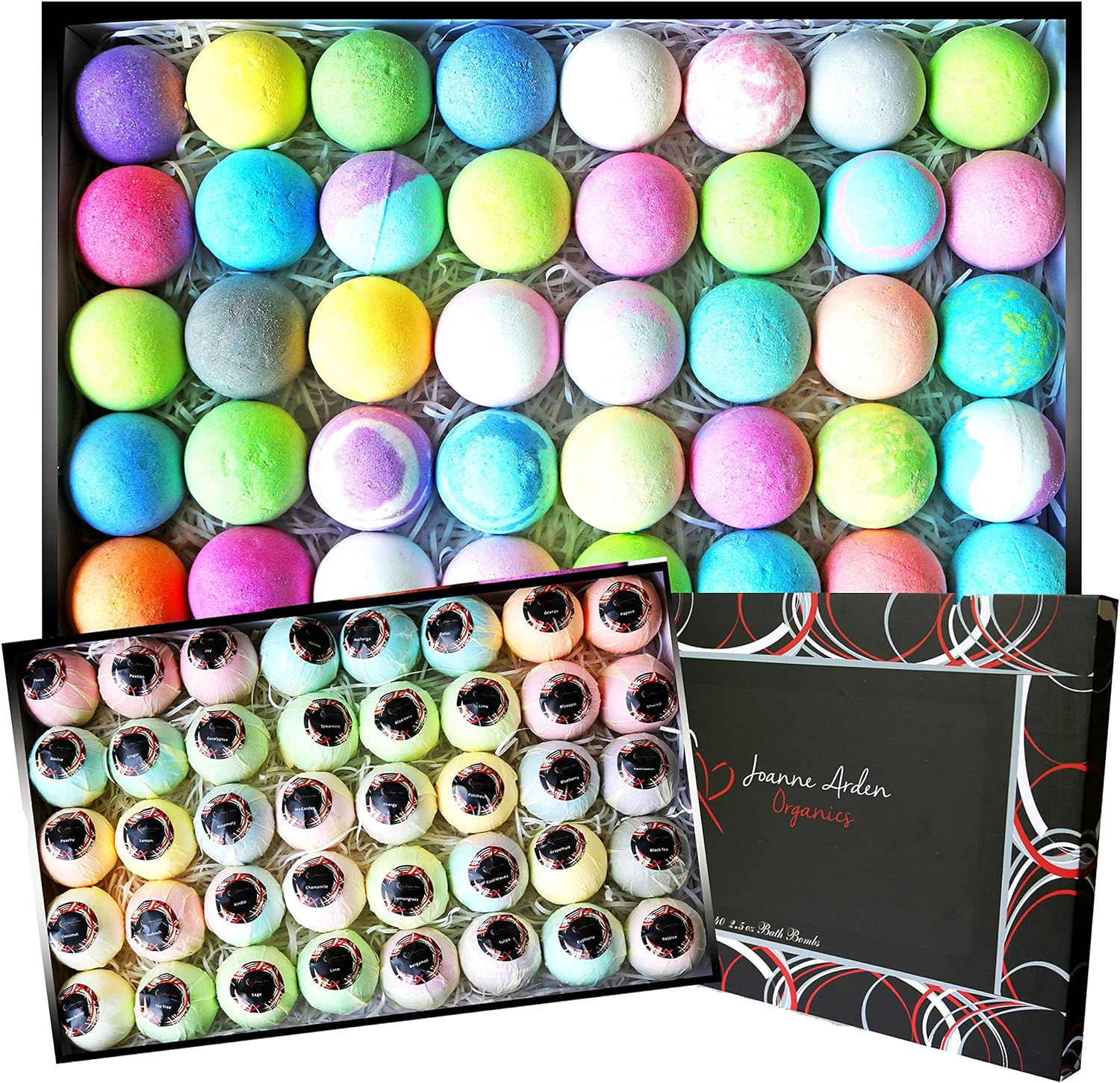
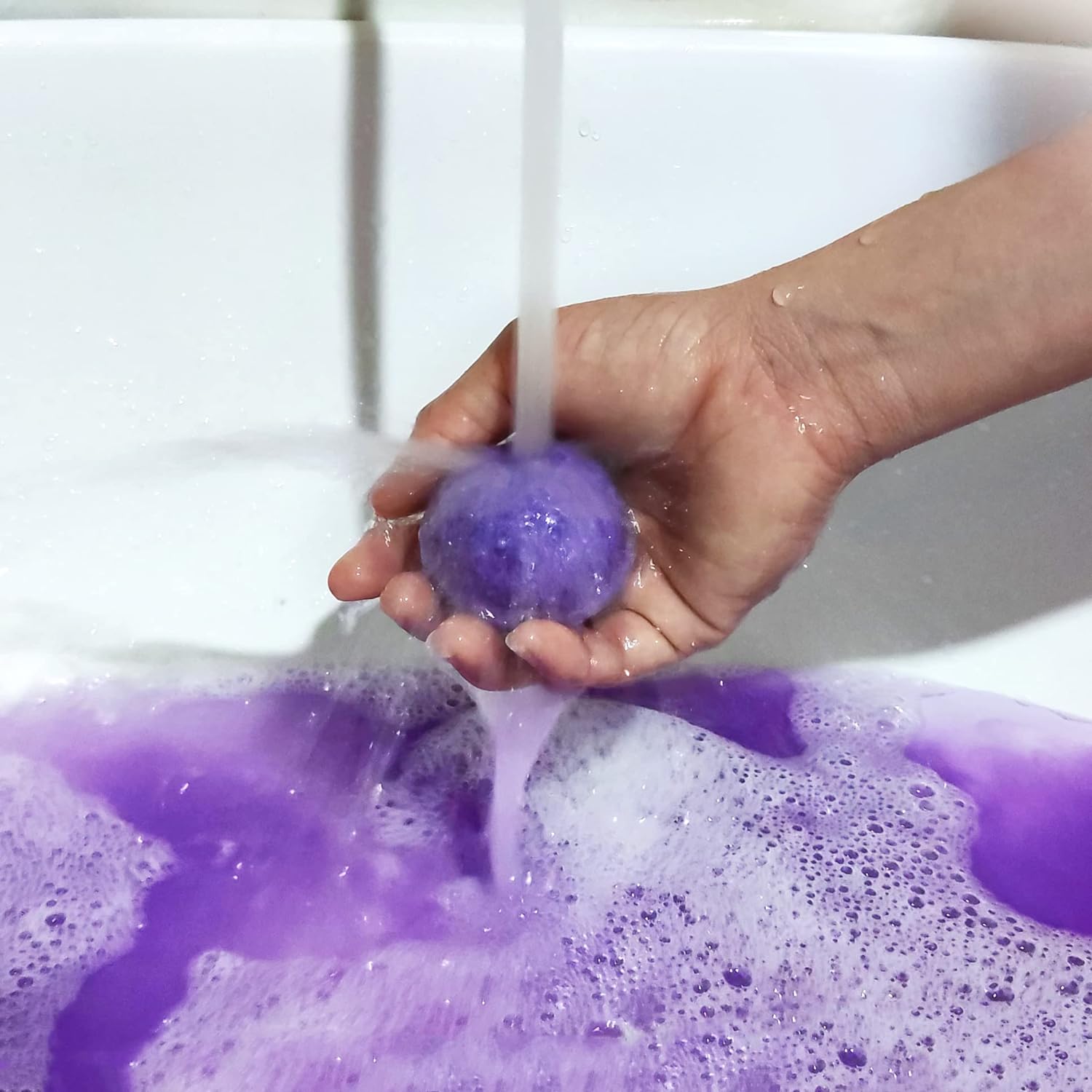
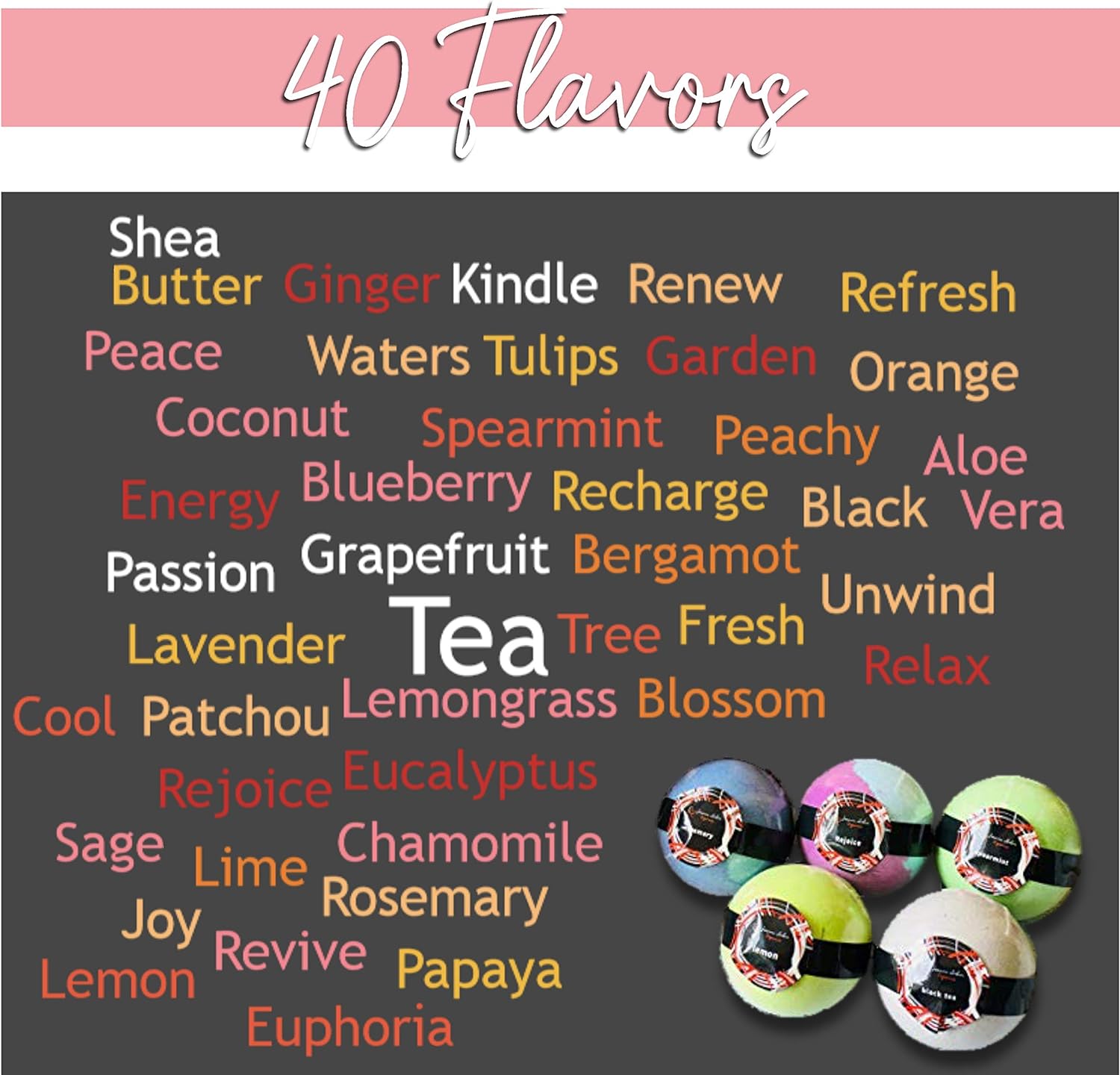
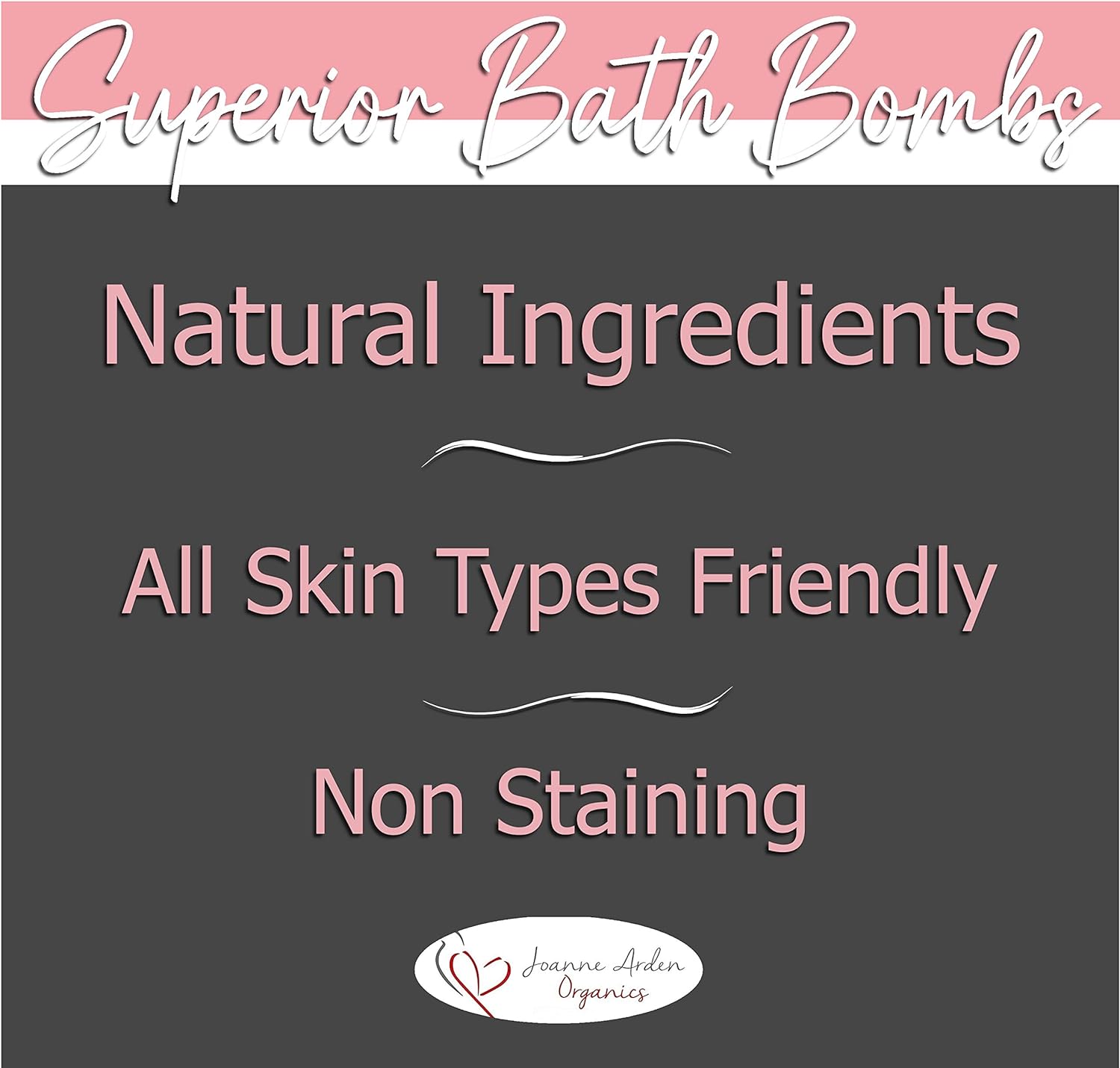
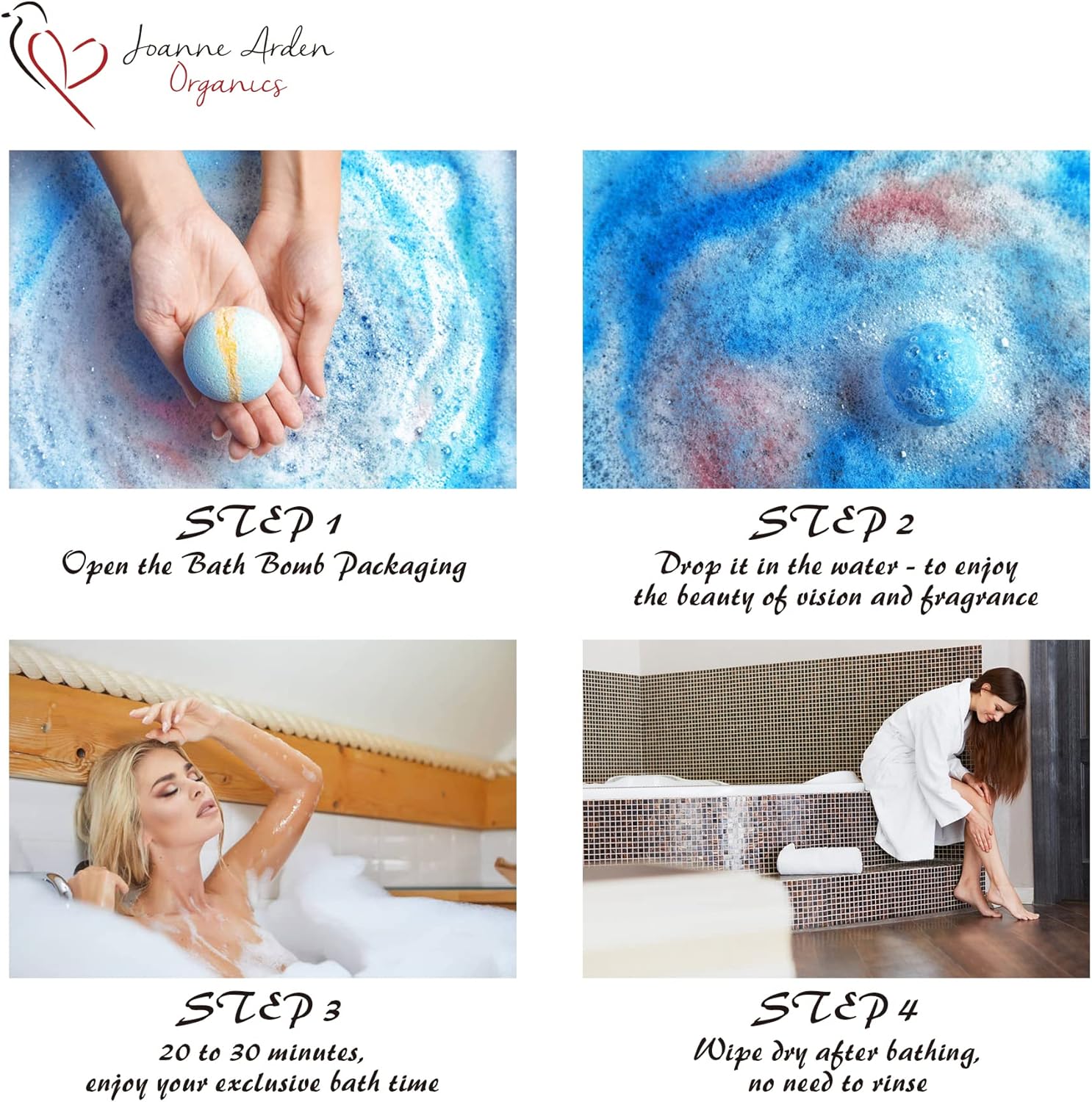
Joanne Arden Bath and Body Set - 40 Vegan Bath Bombs, Paraben & Sulfate Free, 2.5oz Each


Citrus Reticulata Leaf Oil
High RiskCitrus reticulata leaf oil is derived from the leaves of the mandarin orange tree. It is primarily used for its aromatic properties in personal care products, contributing to fragrance and sensory experiences.
Sustai Insights
Citrus reticulata leaf oil offers functional benefits as a natural fragrance component but has a high allergenic potential, raising concerns for sensitive individuals. It poses low risks for carcinogenicity and developmental toxicity, but regulatory restrictions exist due to its allergenic effects. Environmental risks include persistence and bioaccumulation. Overall, the risk level associated with this ingredient is high, and caution is advised in its use. Alternatives such as synthetic fragrances or other plant-derived oils may offer safer options.
Citric Acid
Medium RiskCitric acid is an alpha hydroxy acid used in personal care products primarily for its role as a pH adjuster and natural preservative. It occurs naturally in citrus fruits and is commonly utilized in various formulations for its chelating properties and mild exfoliation benefits.
Sustai Insights
Citric acid offers functional benefits as an effective preservative and pH stabilizer, contributing to product longevity and stability. It is biodegradable and derived from renewable sources. Health risks are low, with minimal concerns regarding carcinogenicity, allergies, and reproductive toxicity. However, moderate use restrictions exist due to potential irritation at high concentrations. Environmental risks are limited, as citric acid is not known to accumulate in ecosystems. Regulatory agencies have no significant advisories against its use. Overall, it is assessed as a medium-risk ingredient, with safe usage practices recommended and alternatives available.
Simmondsia Chinensis (Jojoba)
Low RiskSimmondsia chinensis, commonly known as jojoba, is an oil derived from the seeds of the jojoba plant. It is commonly used in cosmetic formulations for its moisturizing properties, acting as an emollient and skin conditioning agent.
Sustai Insights
Jojoba oil offers functional benefits such as effective skin moisturization and is biodegradable, with sustainable sourcing practices. Health risks are low, with minimal concerns regarding carcinogenicity, allergies, and reproductive toxicity. Environmental impact is negligible, with no pollutant or bioaccumulation potential. Regulatory status is favorable with no significant restrictions noted. Overall, it is assessed as low risk, and safe usage practices should be maintained. Alternatives include other plant-derived oils like argan or almond oil, which may provide similar benefits.
Dead Sea Salt
Low RiskDead Sea salt is a mineral-rich salt harvested from the Dead Sea, primarily composed of sodium chloride along with various other minerals such as magnesium, calcium, and potassium. It is commonly used in cosmetic and therapeutic products for its exfoliating and moisturizing properties.
Sustai Insights
Dead Sea salt offers functional benefits as a natural exfoliant and skin hydrator, often praised for its mineral content that may support skin health. It is considered low risk for health concerns such as cancer, allergies, and reproductive toxicity, with no current usage restrictions. However, environmental risks are minimal, and it is not known to be bioaccumulative. Regulatory bodies have not issued warnings regarding its safety. Overall, it is assessed as low risk, and while alternatives exist, Dead Sea salt remains a well-regarded option in personal care formulations.
Water
Low RiskWater is a clear, colorless liquid essential for various biological processes. It serves as a solvent in formulations, facilitating the dissolution of other ingredients and enhancing product texture and application. Additionally, water plays a crucial role in hydration and is a key component in many cosmetic and personal care products.
Sustai Insights
Water is an effective solvent and hydrator, contributing to the texture and efficacy of formulations. It is biodegradable and generally regarded as safe, with low concerns regarding carcinogenicity, allergies, and reproductive toxicity. However, excessive water usage can lead to environmental concerns, particularly regarding resource depletion. Regulatory bodies do not impose restrictions on water use in cosmetics. Overall, the risks associated with water are low, making it a safe and essential ingredient.
Sodium Bicarbonate
Low RiskSodium bicarbonate, commonly known as baking soda, is an inorganic compound with the formula NaHCO₃. It functions primarily as a leavening agent in baking, helping to produce carbon dioxide gas when it reacts with acids, thereby causing dough to rise. It also serves as a mild alkaline agent in various personal care products.
Sustai Insights
Sodium bicarbonate is valued for its effectiveness as a leavening agent and its role in neutralizing acidity, contributing to product stability. It is considered environmentally friendly and biodegradable. Health risks are minimal, with low concerns regarding carcinogenicity, allergies, and reproductive toxicity. It is not classified as a pollutant and poses no significant environmental hazards. Regulatory assessments indicate it is safe for use in food and cosmetic products. Overall, sodium bicarbonate carries a low risk, making it a practical choice in many applications.
Kaolin
Low RiskKaolin is a clay mineral composed of hydrated aluminum silicate. It is commonly used in various products for its absorbent properties, acting as a thickener, filler, and anti-caking agent in cosmetics, pharmaceuticals, and food applications.
Sustai Insights
Kaolin offers functional benefits such as effective absorption and thickening, making it valuable in personal care and industrial products. It is generally considered safe, with low concerns related to carcinogenicity, allergies, and reproductive toxicity. Environmental risks are minimal, as it is not known to be a pollutant or bioaccumulative. Regulatory bodies impose few restrictions, underscoring its low-risk profile. Safe usage practices are recommended, and while alternatives exist, kaolin remains a low-risk option in its applications.
Butyrospermum Parkii (Shea) Butter
Low RiskButyrospermum parkii (shea) butter is a vegetable fat derived from the nuts of the shea tree. It is commonly used in cosmetic formulations for its emollient properties, providing moisture and improving skin texture. Additionally, shea butter is known for its ability to enhance the stability of products and deliver a creamy texture.
Sustai Insights
Shea butter offers functional benefits as an effective moisturizer, enhancing skin barrier function and texture. It is sustainably sourced and biodegradable, contributing to eco-friendliness. Health-wise, it is associated with low risks for carcinogenicity, allergies, and reproductive toxicity. Environmental impacts are minimal, with no significant pollutant potential identified. Regulatory assessments indicate no current restrictions. Overall, the ingredient presents a low risk, making it a favorable choice in cosmetic formulations.
Citrus Reticulata Leaf Oil
High RiskCitrus reticulata leaf oil is derived from the leaves of the mandarin orange tree. It is primarily used for its aromatic properties in personal care products, contributing to fragrance and sensory experiences.
Sustai Insights
Citrus reticulata leaf oil offers functional benefits as a natural fragrance component but has a high allergenic potential, raising concerns for sensitive individuals. It poses low risks for carcinogenicity and developmental toxicity, but regulatory restrictions exist due to its allergenic effects. Environmental risks include persistence and bioaccumulation. Overall, the risk level associated with this ingredient is high, and caution is advised in its use. Alternatives such as synthetic fragrances or other plant-derived oils may offer safer options.
Simmondsia Chinensis (Jojoba)
Low RiskSimmondsia chinensis, commonly known as jojoba, is an oil derived from the seeds of the jojoba plant. It is commonly used in cosmetic formulations for its moisturizing properties, acting as an emollient and skin conditioning agent.
Sustai Insights
Jojoba oil offers functional benefits such as effective skin moisturization and is biodegradable, with sustainable sourcing practices. Health risks are low, with minimal concerns regarding carcinogenicity, allergies, and reproductive toxicity. Environmental impact is negligible, with no pollutant or bioaccumulation potential. Regulatory status is favorable with no significant restrictions noted. Overall, it is assessed as low risk, and safe usage practices should be maintained. Alternatives include other plant-derived oils like argan or almond oil, which may provide similar benefits.
Dead Sea Salt
Low RiskDead Sea salt is a mineral-rich salt harvested from the Dead Sea, primarily composed of sodium chloride along with various other minerals such as magnesium, calcium, and potassium. It is commonly used in cosmetic and therapeutic products for its exfoliating and moisturizing properties.
Sustai Insights
Dead Sea salt offers functional benefits as a natural exfoliant and skin hydrator, often praised for its mineral content that may support skin health. It is considered low risk for health concerns such as cancer, allergies, and reproductive toxicity, with no current usage restrictions. However, environmental risks are minimal, and it is not known to be bioaccumulative. Regulatory bodies have not issued warnings regarding its safety. Overall, it is assessed as low risk, and while alternatives exist, Dead Sea salt remains a well-regarded option in personal care formulations.
Water
Low RiskWater is a clear, colorless liquid essential for various biological processes. It serves as a solvent in formulations, facilitating the dissolution of other ingredients and enhancing product texture and application. Additionally, water plays a crucial role in hydration and is a key component in many cosmetic and personal care products.
Sustai Insights
Water is an effective solvent and hydrator, contributing to the texture and efficacy of formulations. It is biodegradable and generally regarded as safe, with low concerns regarding carcinogenicity, allergies, and reproductive toxicity. However, excessive water usage can lead to environmental concerns, particularly regarding resource depletion. Regulatory bodies do not impose restrictions on water use in cosmetics. Overall, the risks associated with water are low, making it a safe and essential ingredient.
Citric Acid
Medium RiskCitric acid is an alpha hydroxy acid used in personal care products primarily for its role as a pH adjuster and natural preservative. It occurs naturally in citrus fruits and is commonly utilized in various formulations for its chelating properties and mild exfoliation benefits.
Sustai Insights
Citric acid offers functional benefits as an effective preservative and pH stabilizer, contributing to product longevity and stability. It is biodegradable and derived from renewable sources. Health risks are low, with minimal concerns regarding carcinogenicity, allergies, and reproductive toxicity. However, moderate use restrictions exist due to potential irritation at high concentrations. Environmental risks are limited, as citric acid is not known to accumulate in ecosystems. Regulatory agencies have no significant advisories against its use. Overall, it is assessed as a medium-risk ingredient, with safe usage practices recommended and alternatives available.
Sodium Bicarbonate
Low RiskSodium bicarbonate, commonly known as baking soda, is an inorganic compound with the formula NaHCO₃. It functions primarily as a leavening agent in baking, helping to produce carbon dioxide gas when it reacts with acids, thereby causing dough to rise. It also serves as a mild alkaline agent in various personal care products.
Sustai Insights
Sodium bicarbonate is valued for its effectiveness as a leavening agent and its role in neutralizing acidity, contributing to product stability. It is considered environmentally friendly and biodegradable. Health risks are minimal, with low concerns regarding carcinogenicity, allergies, and reproductive toxicity. It is not classified as a pollutant and poses no significant environmental hazards. Regulatory assessments indicate it is safe for use in food and cosmetic products. Overall, sodium bicarbonate carries a low risk, making it a practical choice in many applications.
Kaolin
Low RiskKaolin is a clay mineral composed of hydrated aluminum silicate. It is commonly used in various products for its absorbent properties, acting as a thickener, filler, and anti-caking agent in cosmetics, pharmaceuticals, and food applications.
Sustai Insights
Kaolin offers functional benefits such as effective absorption and thickening, making it valuable in personal care and industrial products. It is generally considered safe, with low concerns related to carcinogenicity, allergies, and reproductive toxicity. Environmental risks are minimal, as it is not known to be a pollutant or bioaccumulative. Regulatory bodies impose few restrictions, underscoring its low-risk profile. Safe usage practices are recommended, and while alternatives exist, kaolin remains a low-risk option in its applications.
Butyrospermum Parkii (Shea) Butter
Low RiskButyrospermum parkii (shea) butter is a vegetable fat derived from the nuts of the shea tree. It is commonly used in cosmetic formulations for its emollient properties, providing moisture and improving skin texture. Additionally, shea butter is known for its ability to enhance the stability of products and deliver a creamy texture.
Sustai Insights
Shea butter offers functional benefits as an effective moisturizer, enhancing skin barrier function and texture. It is sustainably sourced and biodegradable, contributing to eco-friendliness. Health-wise, it is associated with low risks for carcinogenicity, allergies, and reproductive toxicity. Environmental impacts are minimal, with no significant pollutant potential identified. Regulatory assessments indicate no current restrictions. Overall, the ingredient presents a low risk, making it a favorable choice in cosmetic formulations.
Transform any bath into a luxurious spa experience with the Joanne Arden Father's Day Gift Set! This bulk bath bomb kit includes 40 paraben-free and sulfate-free, 2.5 oz spa bath balls, perfect for all ages. Each bath bomb is handcrafted using 100% natural ingredients and essential oils, ensuring a delightful and health-focused soak.
- Superior Quality: Handmade with 100% pure ingredients, these vegan bath bombs are free from toxins, providing a nourishing and hydrating experience for your skin.
- Bulk Bath Bombs Set: Enjoy a unique experience daily with a variety of 40 different natural bath fizzies that create a mesmerizing display of colors and fragrances.
- Feel the Difference: Indulge in a sensory delight as each bomb fizzes, releasing aromatic fragrances without leaving any mess behind.
- Best Gift for All: This versatile gift set is ideal for birthdays, holidays, or just because—perfect for men, women, kids, and teens alike.
- Customer Satisfaction Assured: Trust in a product that promises healthy results; love it or your satisfaction is guaranteed!
Subscribe & Save with Sustai
- Best Price Guarantee: Always enjoy the lowest prices on sustainable home essentials.
- No Surprises: We’ll notify you before shipping. No hidden fees, ever.
- You’re in Charge: Change, pause, or cancel your subscription anytime with ease.
- Eco-Friendly Deliveries: Our grouped shipments mean less packaging and lower emissions.
Join us on a sustainable journey. Special offers for a limited time! Prices and promotions may change.
Recommended Products
Transform any bath into a luxurious spa experience with the Joanne Arden Father's Day Gift Set! This bulk bath bomb kit includes 40 paraben-free and sulfate-free, 2.5 oz spa bath balls, perfect for all ages. Each bath bomb is handcrafted using 100% natural ingredients and essential oils, ensuring a delightful and health-focused soak.
- Superior Quality: Handmade with 100% pure ingredients, these vegan bath bombs are free from toxins, providing a nourishing and hydrating experience for your skin.
- Bulk Bath Bombs Set: Enjoy a unique experience daily with a variety of 40 different natural bath fizzies that create a mesmerizing display of colors and fragrances.
- Feel the Difference: Indulge in a sensory delight as each bomb fizzes, releasing aromatic fragrances without leaving any mess behind.
- Best Gift for All: This versatile gift set is ideal for birthdays, holidays, or just because—perfect for men, women, kids, and teens alike.
- Customer Satisfaction Assured: Trust in a product that promises healthy results; love it or your satisfaction is guaranteed!

You can have at most 2 Sustainable Steals products in your cart
Customer Reviews
Customers’ View
Customers express high satisfaction with the Bath Bomb Set, highlighting its handmade quality and nourishing formulation. Many appreciate the diverse selection of 40 unique bath bombs, noting that they provide enjoyable aromas and moisturizing benefits. Users have mentioned that these bath bombs leave their skin feeling soft and hydrated, with one customer stating they don't even need additional lotion after use. Additionally, the eco-friendly packaging resonates with environmentally conscious consumers, although some reviews suggest the scent could be stronger when the bombs dissolve in water. Overall, this product is well-received for its natural ingredients and thoughtful design, appealing to those prioritizing health and sustainability in their personal care routine.
AI-generated from the text of customer reviewsThis product is rated 4.6 of 5.0 stars.
It has received 72 reviews.





